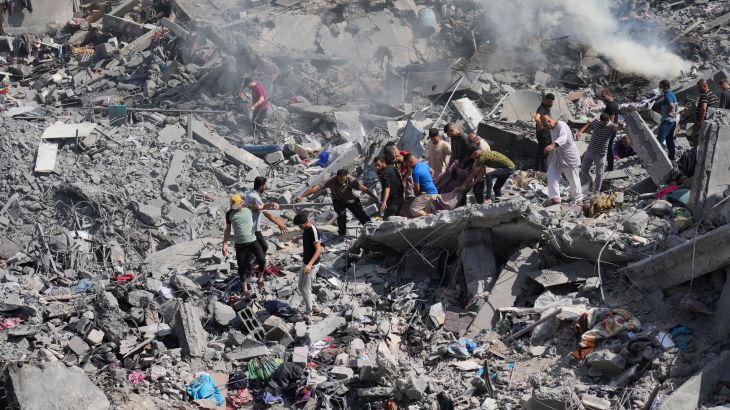Israel has announced that it would allow the delivery of humanitarian aid to Gaza through Egypt including food, water, and medicine. Prime Minister Benjamin Netanyahu’s office confirmed that it made this decision in response to a request from US President Joe Biden.
Israel emphasized that the aid should not reach Hamas, the governing authority in Gaza. However, Israel maintained that it would not provide the aid directly from its own territory until Hamas released dozens of hostages taken during a major attack on October 7, which subsequently escalated into a full-scale conflict. The Israeli statement highlighted the demand for Red Cross visits with the captives and sought broad international support for this requirement.

Israel has imposed a severe blockade on Gaza since Hamas took control in 2007, resulting in shortages of essential supplies like water, fuel, and food. The situation further deteriorated after Israel sealed off the territory following the October 7 attack.
Israel has retaliated by bombing Gaza, resulting in an estimated 1,400 Israelis and 3,500 Palestinians killed so far.
This announcement coincided with President Biden’s recent visit to Israel, during which he reaffirmed US support for the country and endorsed Israel’s assertion that Palestinians were responsible for a deadly rocket strike on a Gaza hospital.
US Veto
Regarding the United States, it exercised its veto power at the United Nations Security Council, blocking a resolution put forward by Brazil that called for humanitarian pauses in the ongoing conflict between Israel and Palestinian Hamas militants. The purpose of these pauses was to facilitate the delivery of humanitarian aid to the Gaza Strip.
This vote was been postponed twice as the US worked to negotiate aid access to Gaza, emphasizing the importance of diplomacy in the region. In the vote, twelve member states supported the Brazilian-drafted resolution, while Russia and Britain abstained.
US Ambassador to the United Nations, Linda Thomas-Greenfield, defended the decision to veto the resolution, stating, “We are on the ground doing the hard work of diplomacy. We believe we need to let that diplomacy play out. Yes, resolutions are important, and yes, this council must speak out. But the actions we take must be informed by the facts on the ground and support direct diplomacy efforts. That can save lives. The council needs to get this right.”


